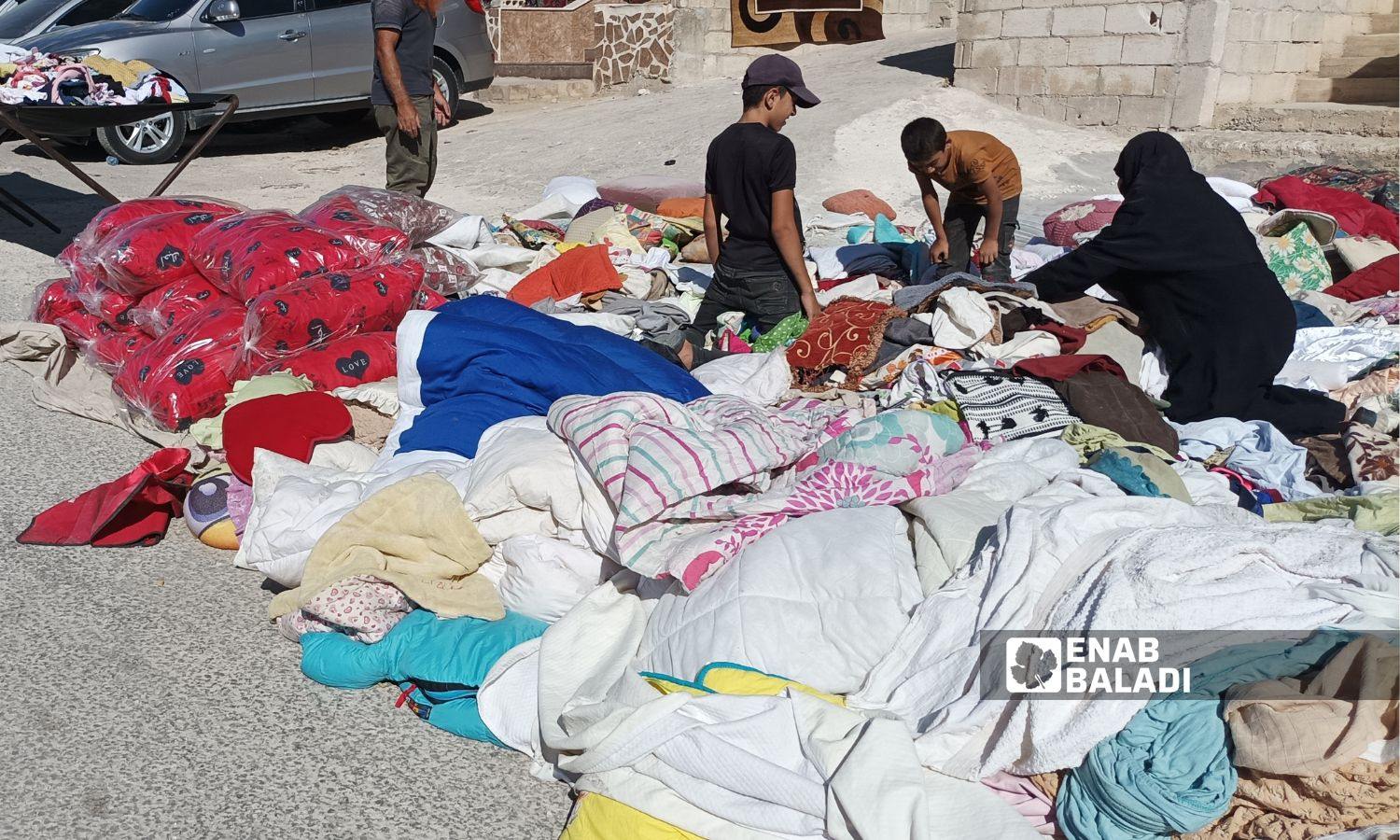



Thursday is the eagerly awaited day of the week for seventy-something-year-old “Umm Abdo.” After counting her needs, she prepares early and heads to the bazaar to buy them before the sun’s heat intensifies and the market becomes crowded, which worries her as she suffers from high blood pressure.
The woman, residing in Idlib, knocks on her neighbors’ doors to go together, maintaining a routine they have kept for about two years. She tells Enab Baladi that she has become a regular customer at her neighborhood’s bazaar to buy what she needs at lower prices compared to other shops.
Umm Abdo, a widow whose only source of income is the rent from her late husband’s shop, wanders the market searching for her requests, carrying a cloth bag to fill. She considers that the bazaar has relieved her financial burden, in case she decided to buy from other places.
Due to the lower prices, even if slightly, the bazaar on weekdays in the neighborhoods of Idlib serves as a refuge for many families amid a deteriorating economic reality and few job opportunities.
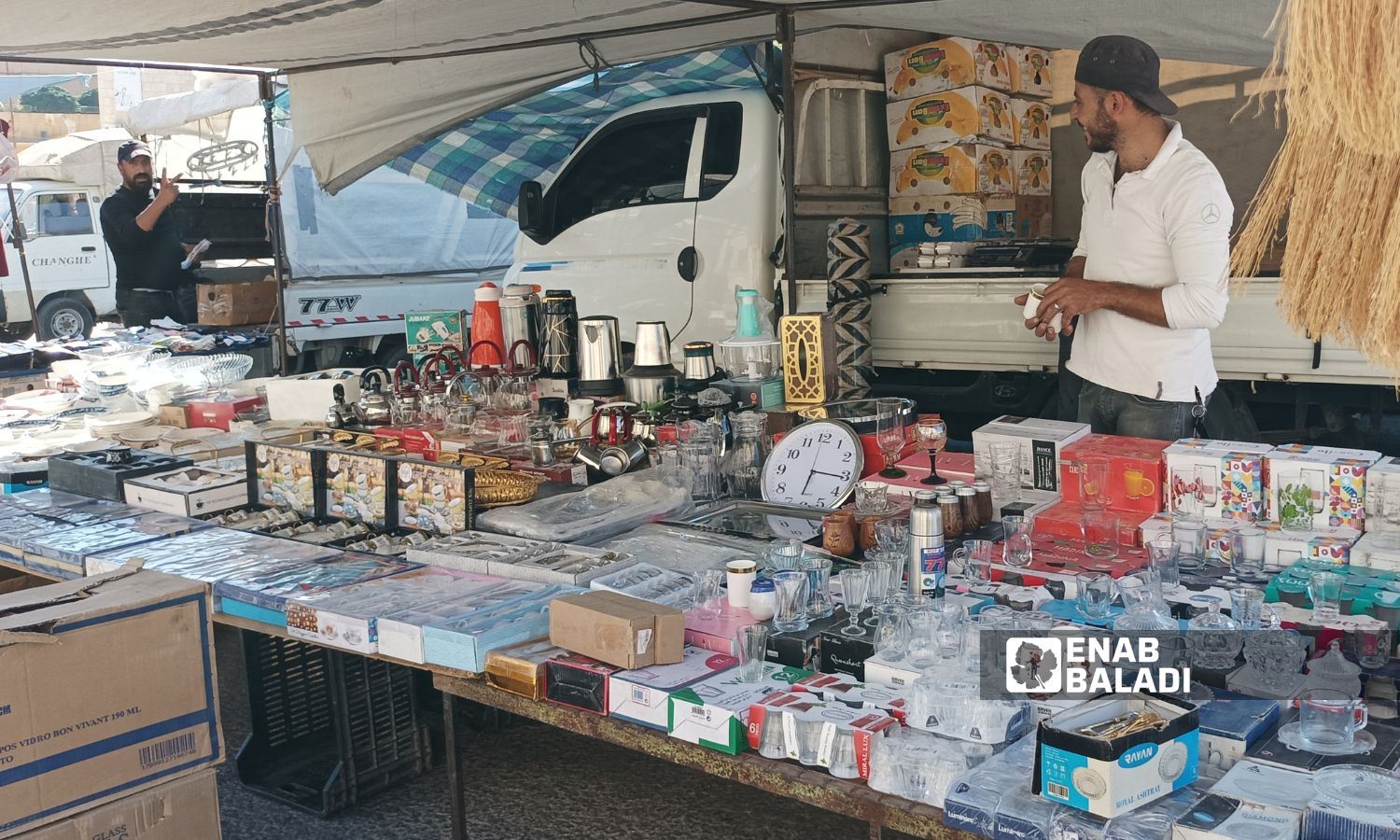
Mobile bazaars are held on weekdays in Idlib neighborhoods – September 28, 2024 (Enab Baladi/Samah Alloush)
Thousands of people with limited incomes visit these mobile bazaars daily, as they are popular markets with prices somewhat compatible with their purchasing power. Sellers reduce profit margins to attract customers.
These markets provide goods cheaper than stores, ranging from vegetables to clothing, household items, and furniture. For instance, one kilogram of Egyptian rice sells for 27 Turkish lira, while in shops, it’s 35 Turkish lira (about one US dollar).
The price of used shoes from the European second-hand stall ranges from 100 to 200 Turkish lira, depending on quality, while in some shops, it reaches 300 Turkish lira or more.
Ahmed al-Othman (38 years old), a used clothing stall owner, stated that most customers are from the middle and poor classes and displaced people. They resort to popular markets to buy larger quantities at lower prices, noting that markets witness bargaining and requests from customers for discounts, despite the small profit margin.
He mentioned to Enab Baladi that the markets are seasonal with no average revenue; they thrive at the beginning of winter or summer and when Ramadan or the school year begins.
He added that activity increases during festivals, sales rise, and the market becomes crowded. In extreme heat or rainy seasons, sellers are forced to close and return home without selling.
About two years ago, the Idlib city council created mobile markets after issuing a decision to remove all stalls spread on sidewalks, markets, and near crowded places to maintain citizen and vehicle movement.
These markets offer almost all products such as clothes and shoes, both used and new, but with medium quality to match the purchasing power of their visitors, where a worker’s daily wage in the area does not exceed 100 Turkish lira (three US dollars).
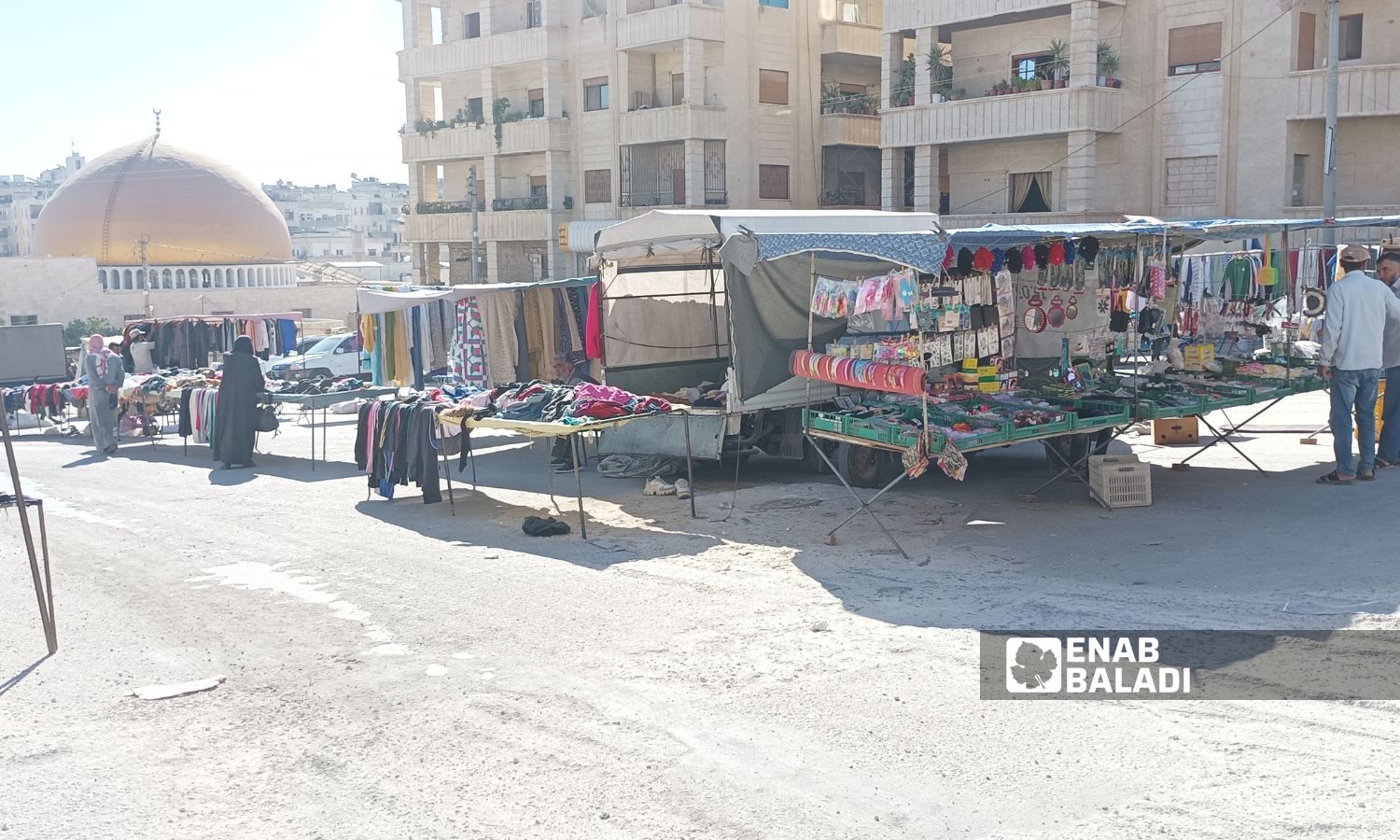
Mobile bazaars are held on weekdays in Idlib neighborhoods – September 28, 2024 (Enab Baladi/Samah Alloush)
Commenting on these markets, stall owner Jamal (40 years old), who sells canned goods and food items, said they are beneficial and have saved some money since sellers cannot afford high shop rents.
Despite being mobile among six neighborhoods in the city and at different places, customers have grown accustomed to them and their products, according to the vendor.
He added that he faces some challenges, as sellers have to wake up early daily to find a spot in the designated neighborhood to display their goods before the area is occupied, pointing out that the biggest challenge is the weather, as most sellers do not have a roof to protect from the sun’s heat or winter’s cold.
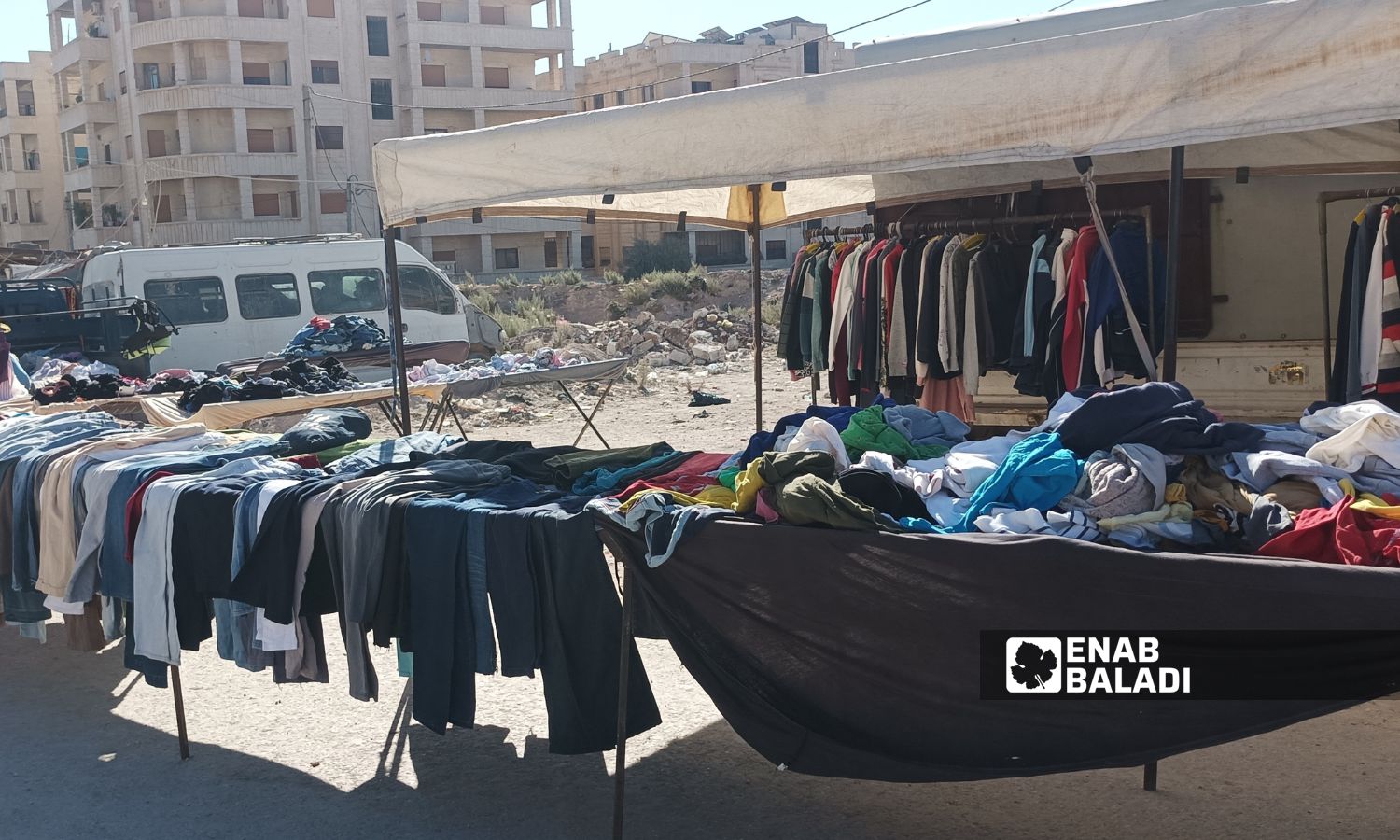
Two years ago, the Idlib city council created mobile markets after removing stalls from sidewalks in Idlib – September 28, 2024 (Enab Baladi/Samah Alloush)
The stalls in these markets constitute an income source for their owners amid high unemployment rates in most northern Syrian areas, which reached about 75% for males and about 93% for females, while it was higher among displaced people in towns and cities in northwestern Syria, recording 89.92% among males and 96.77% among females, according to a report published by the Syria Response Coordination Group (SRCG) team last August.
This high unemployment rate drives shoppers towards popular bazaars, especially for used clothes to buy their needs at the lowest possible cost.
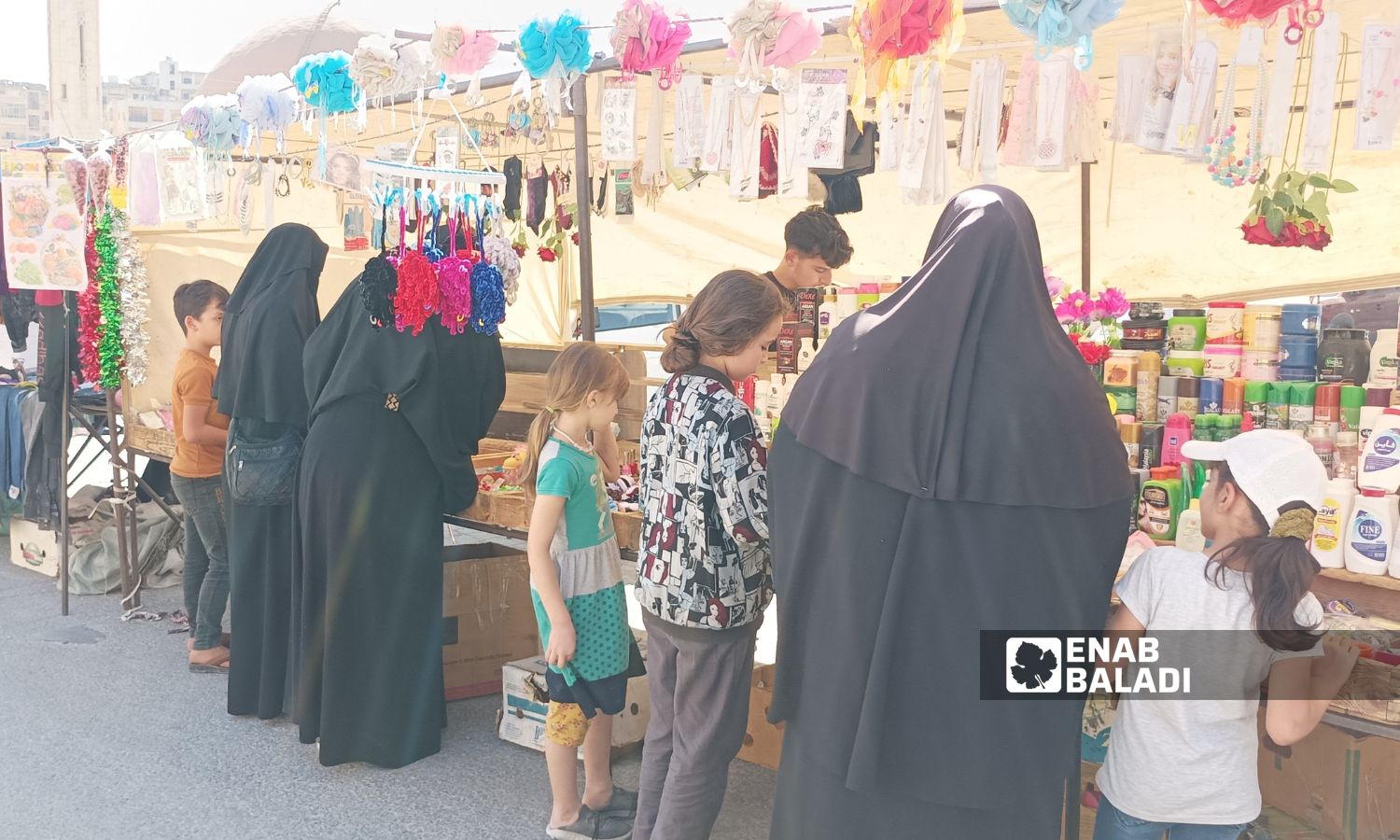
People with limited income buy their necessities from stalls in Idlib – September 28, 2024 (Enab Baladi/Samah Alloush)
if you think the article contain wrong information or you have additional details Send Correction